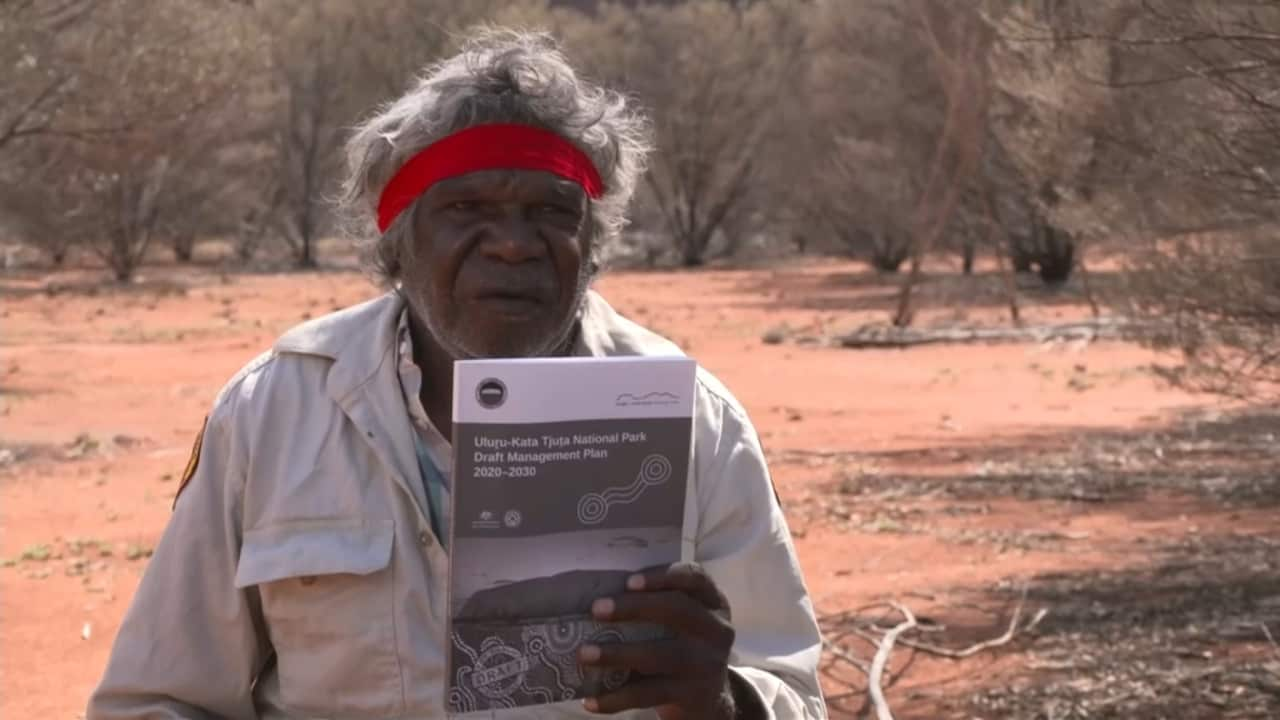Traditional Owners say a new 10-year plan to jointly manage the Uluru-Kata Tjuta National Park will put Aṉangu people, culture and knowledge first.
It is also the first time ever that the plan will be translated into the local Pitjantjatjara Yankunytjatjara language.
Aṉangu man Sidney James, Chairman of the park's board of management, said respecting the local culture placed the future of the park in good hands.
"The Aṉangu Elders who passed away, they were promised our young people would come and work and learn our culture," he said through a translator.
"Then they will take on over the years, the Aṉangu young leaders continue... leading the park."
The park's last 10-year plan included the permanent closure of Uluru to climbing, respecting an agreement made decades ago, and acknowledging the site's sacred place in local culture.
Mr James said the park offered so many more opportunities to engage with Country and traditional knowledge.
The park has been joint-managed between the Traditional Owners and federal authorities since 1985, when title of the land was granted under the Land Rights Act.
But the new plan offers the possibility of the park's full management by Traditional Owners in the future, though the prospect is still some way off.

Dianne Scopel is Park Manager at Uluru-Kata Tjuta.
She says it's a huge day for the Aṉangu and the Uluru-Kata Tjuta Board of Management.
"They've put a lot of work in over the last few years to get the document to this level. And it's really got a focus on Aṉangu livelihoods," she said.
Ms Scopel says there is a comprehensive program that encourages young members of the community to become involved in the management of the park, and engage with their culture.
"It starts right from the early days, with school programs, and then through (the) Junior Rangers, on to work experience in the park, working with the... Community Ranger Program," she said.
She said translating the plan gave young people more access to become involved in the workings of the park.
"In the past that's only been in English," she said.
And the idea is to put it into a series of short videos that will hopefully be accessible on... a phone for young people to to be able to access, to learn about the park, but also be inspired and become part of what the park is about."

